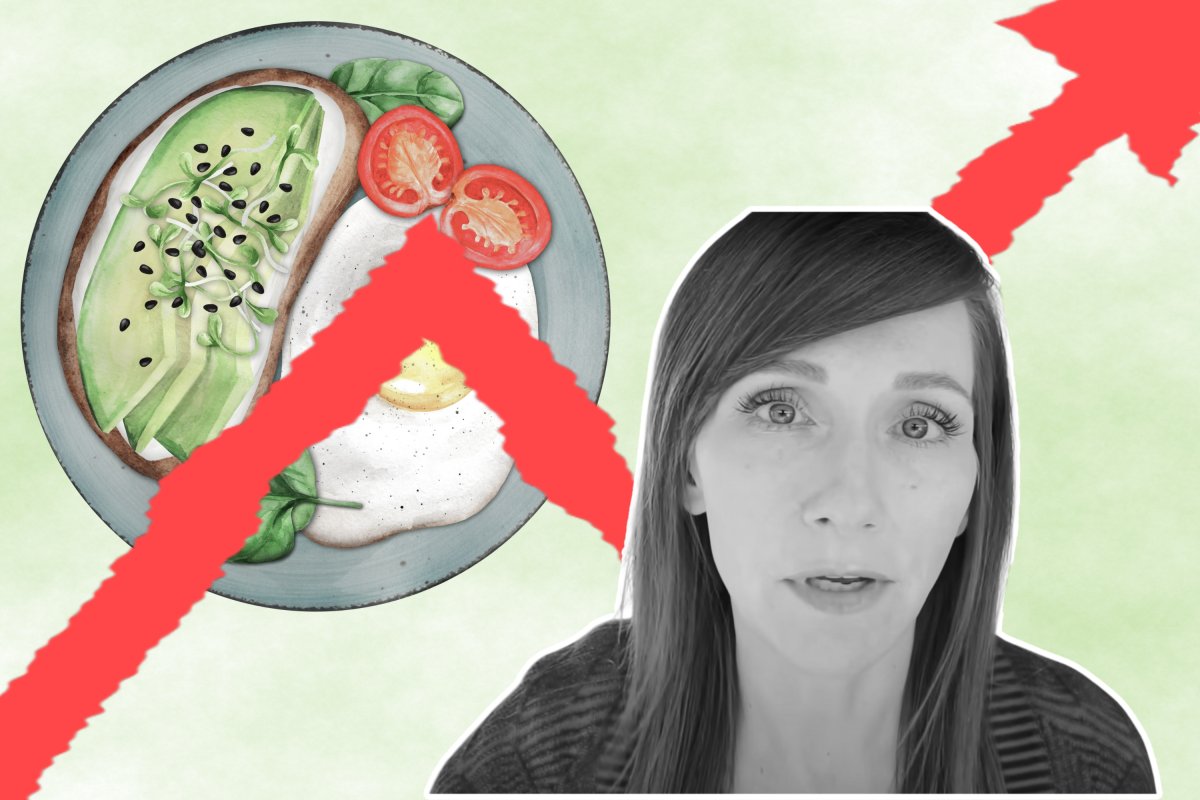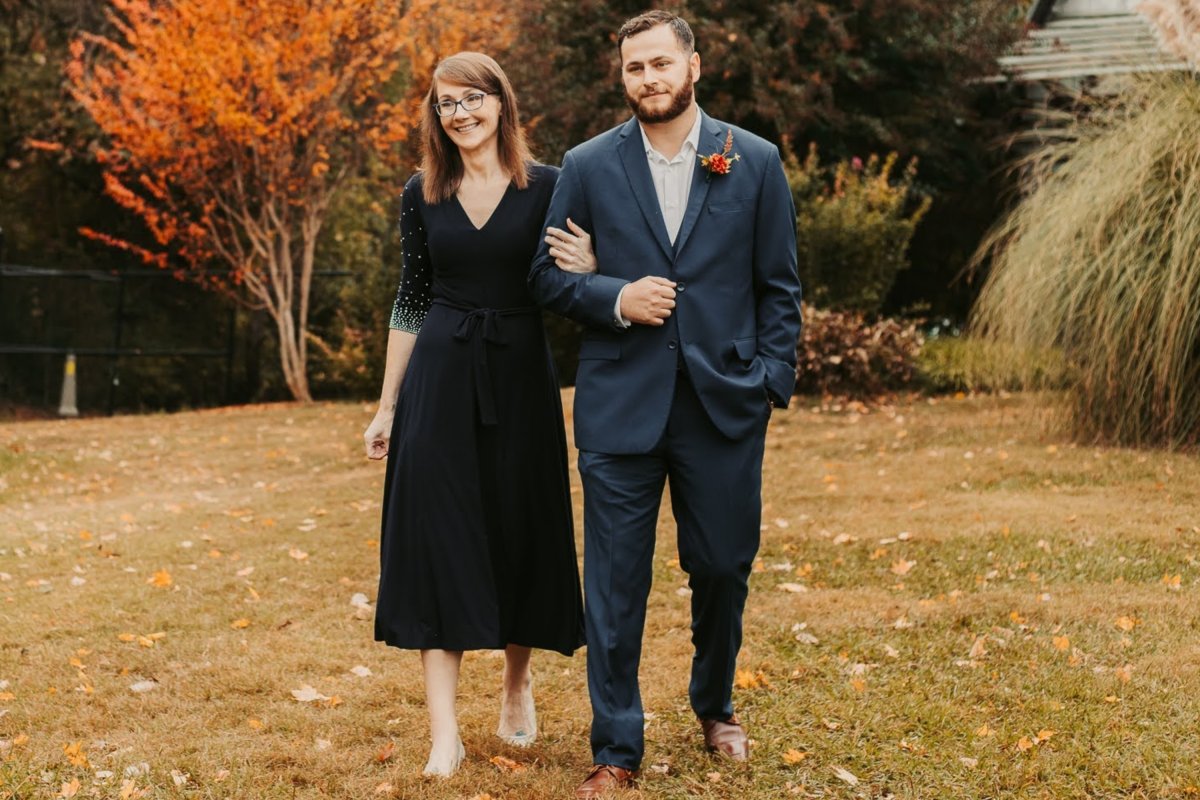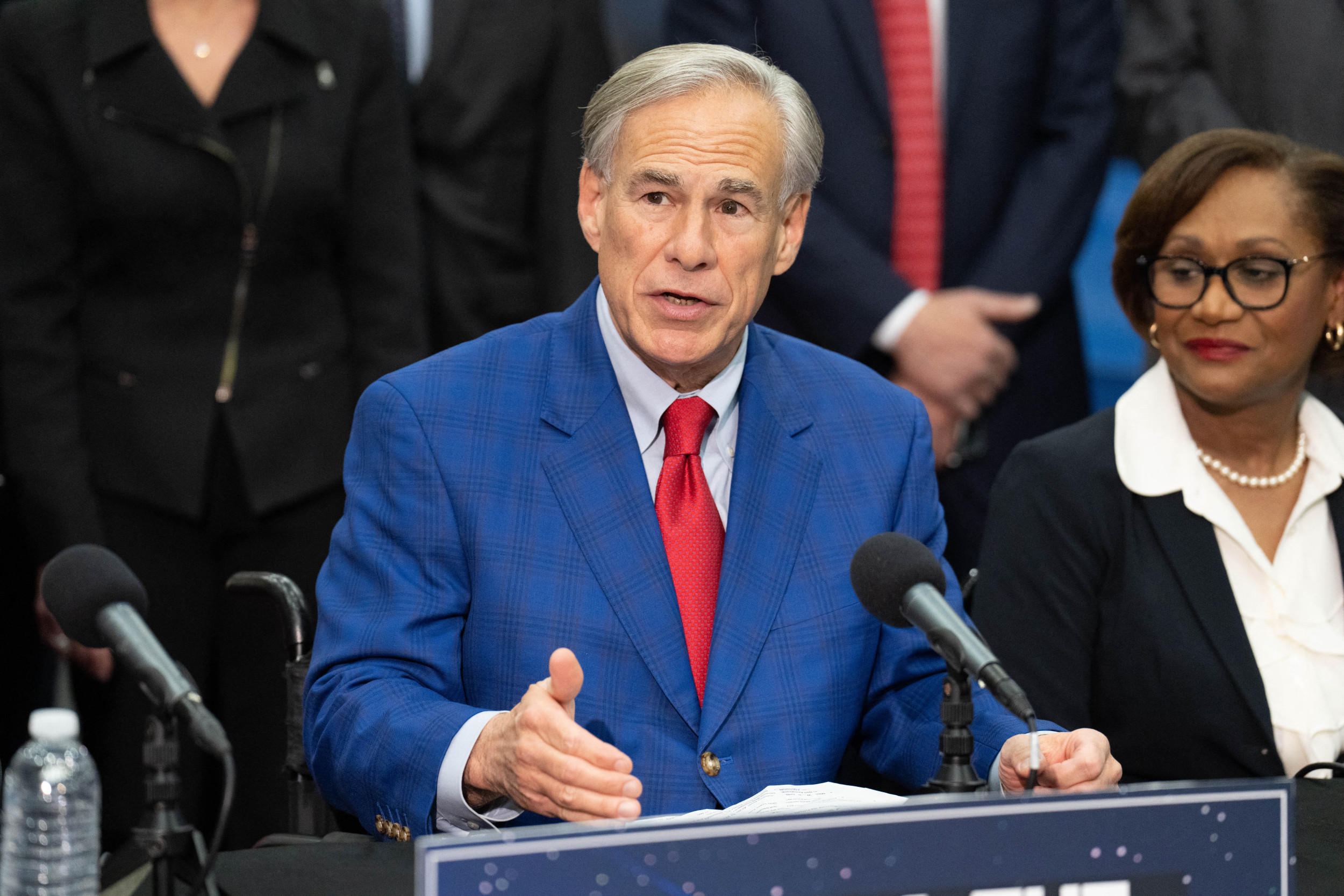I have been overweight pretty much my entire life. It started at age eight, but back then it was called "husky".
Over the decades, I tried all the diets and every new fad that came along—shots, drinks, pills, shakes—but I couldn't find anything that sustainably worked for me.
Everything worked for a little while, but as soon as I went back to the standard American diet, all the weight came back, plus more. By 2006, I was 31 years old, classified as morbidly obese, and weighing in at 330lbs.
I remember my doctor telling me the odds were against me. It would be hard to lose the amount of weight that I needed to through diet and exercise alone. So I made a hasty decision to have gastric bypass surgery, or RNY.
This weight loss surgery involves rerouting a lot of your digestive system and cutting your stomach down to the size of a grape, forcing you to eat only small amounts of food so you lose a drastic amount of weight very quickly.
The years following my surgery were traumatic. Back then, I was not educated on what to expect. The internet was newer, so researching it wasn't easy, and I wasn't informed that my stomach would stretch, or that if I wasn't careful with my diet I could potentially gain back every pound.

I'm an all-or-nothing kind of person. I can become a little obsessive over things, so when I had my weight loss surgery, I followed my doctor's orders to the letter and lost all the weight—156lbs.
I kept most of the weight off over the next decade, but not because I was being healthy about it.
Thirteen years after my surgery, in 2019, I started gaining weight back, around 70lbs. I was back up to 232lbs and a tight size 16. My absolutely amazing daughter, Karrigan, had started the keto diet in January of that year. Over the next two months, I saw her drop a ton of weight.
So, in March, that's when I started my journey with keto, which is a diet that restricts the intake of carbohydrates so that your body burns its fat stores for energy instead of sugars. It wasn't easy; no lifestyle change is, especially in the beginning.
But over time, I figured out how to make keto work for me. I managed to lose every single pound I had gained back, and then some. I got to a lower weight with keto than I ever had with weight loss surgery.
Keto was what I had always been searching for. It was my answer to losing the weight and keeping it off. I felt like I'd finally cracked the code, hacked the system where my body was now fat-adapted and running on ketones.
I had more energy, I slept better, my face finally cleared up. I had battled with cystic acne my entire life, and let's not forget about the huge weight loss. That's how it all started. Everything was running smoothly. I was at the top of my game. I had never felt better.
Life was great—until it wasn't.
In September 2021 I noticed something was off. I just wasn't feeling normal. I still had a ton of energy. I was able to go, go, go, but I could eat tons of food, and I was dropping massive amounts of weight.
I just knew in my head, and could feel in my body, that something was off.
I went to the doctor and had some labs drawn. When I got the blood work back, I noticed that my fasting blood glucose was at 300mg/dl, and I knew that wasn't possible. Something wasn't right.
I received a phone call from the nurse telling me that I was a type 2 diabetic. I remember that phone call like it was yesterday. I told her: "Do not put that in my chart. I reject that diagnosis. I'm getting a second opinion."
When I went in to get the second opinion, they had already gone over my lab work, and I remember the nurse practitioner looking at me and saying: "You are the walking definition of type 1 diabetes."
So, at 47 years old, I was diagnosed as an insulin-dependent diabetic, meaning my pancreas is not functioning, and it no longer produces the insulin I need so that my blood sugar can be controlled. I will always, for the rest of my life, inject insulin.
The past two years have been the hardest in my life.
I have felt like a complete and total failure because I can't control my blood sugar, no matter what I eat, what I do, or how hard I try. My blood sugar is constantly up and down, and up and down. I have even tried the carnivore diet.
If I consume zero carbs, I still end up having a blood sugar spike.
At my last endocrinologist appointment in August, I got some answers as to why I'm having such a hard time. It turns out I am sensitive to insulin, and I am also sensitive to food.

It all comes back around full circle to the fact that I had gastric bypass surgery. I absorb things differently.
I will always have these ups and downs. The blood sugar spikes make me physically feel horrible: Headaches, fatigue, sometimes even nausea. But it's the blood sugar lows, when it goes down so quickly—that's the problem. Those are life-threatening.
And this gets to the heart of why I no longer follow keto. When my blood sugar drops so quickly, and oddly enough, it's usually at 3:00 a.m., I must consume sugar.
Sugar and keto are not friends, but I have to bring my blood sugar up so that I don't pass out, go into a diabetic coma, or possibly even die. This daily consumption of sugar and carbs has knocked me out of ketosis.
I define keto as being fat-adapted. You are burning ketones; you're in ketosis. I realize you could talk to a hundred people, and you're probably going to get a hundred different definitions, explanations, versions of keto.
I don't define keto as a food. I hate it when someone says "that's not keto".
If you're keeping your carb count low enough and you're burning ketones, you're fat-adapted, you're doing keto. It doesn't matter what you eat. But for me, I'm not in ketosis, so I'm not doing keto.
I'm now on a low-carb diet, and my plan is to stay on a low-carb diet. It is sustainable for me. Not only is it sustainable, but it has to be. As a type 1 diabetic, if I consume copious amounts of carbs, then I need to inject more insulin.
But insulin doesn't really agree with me. The high carbs would give me a massive blood sugar spike; the insulin would give me that quick drop, and there goes that vicious cycle all over again.
So I plan on doing a low-carb diet forever—and thankfully, I enjoy it.
Kristi Davis runs a YouTube channel dedicated to a low-carb lifestyle.
All views expressed are the author's own.
Do you have a unique experience or personal story to share? Email the My Turn team at myturn@newsweek.com.
Uncommon Knowledge
Newsweek is committed to challenging conventional wisdom and finding connections in the search for common ground.
Newsweek is committed to challenging conventional wisdom and finding connections in the search for common ground.
About the writer
Kristi Davis runs a YouTube channel dedicated to a low-carb lifestyle.
To read how Newsweek uses AI as a newsroom tool, Click here.








